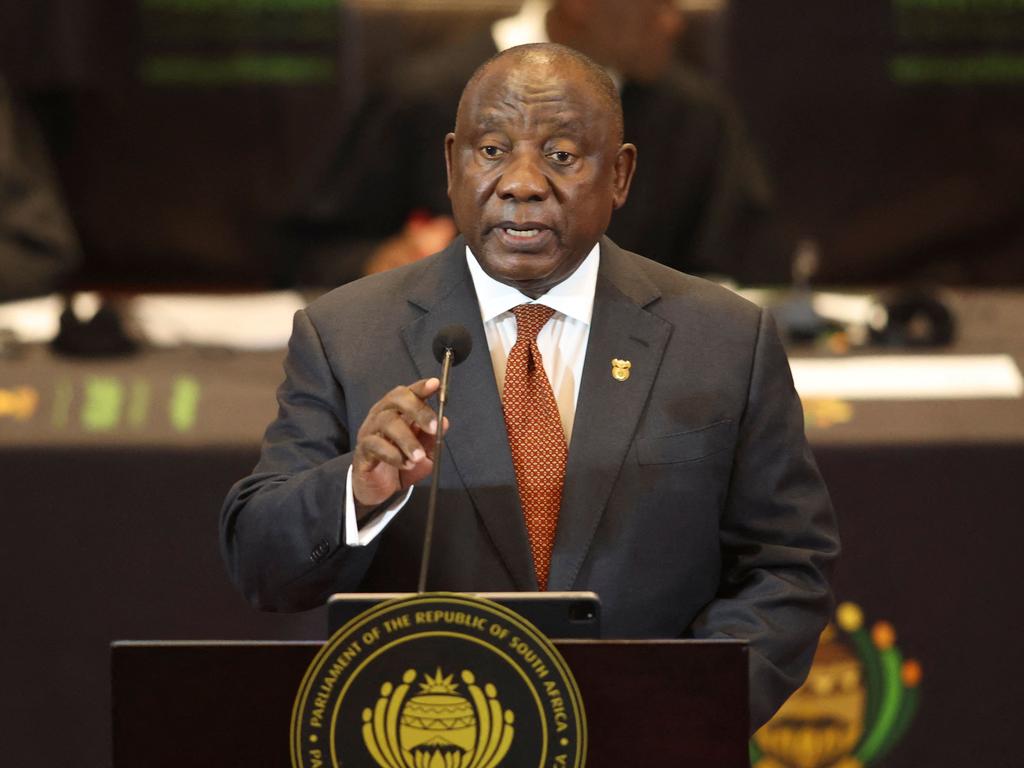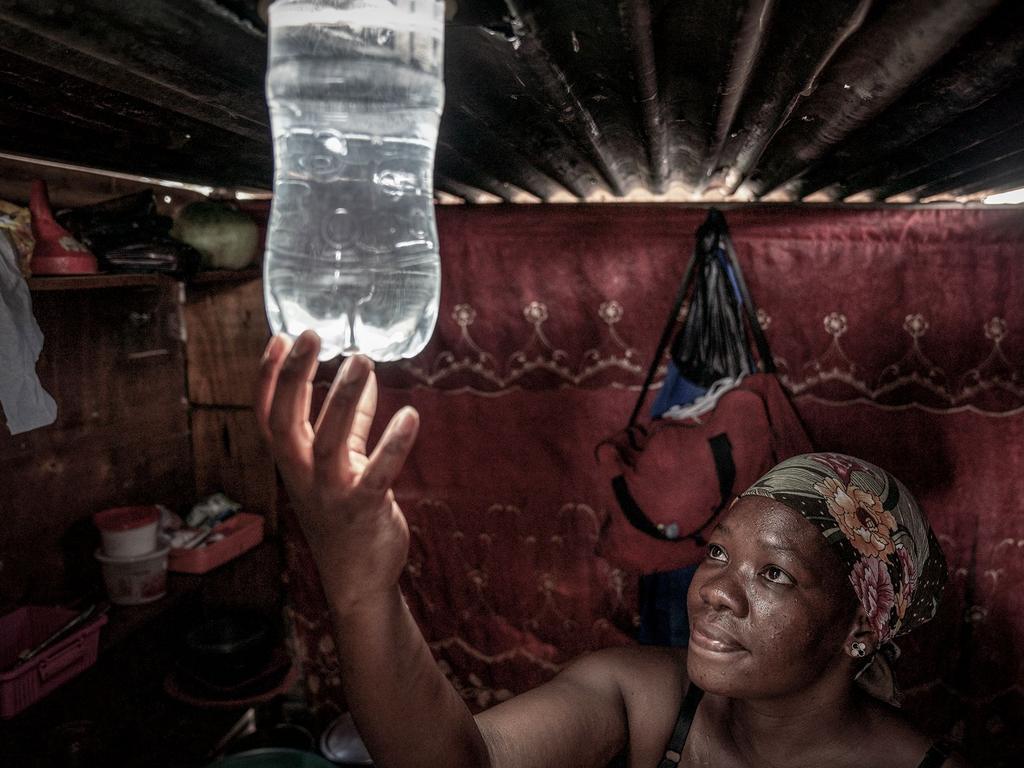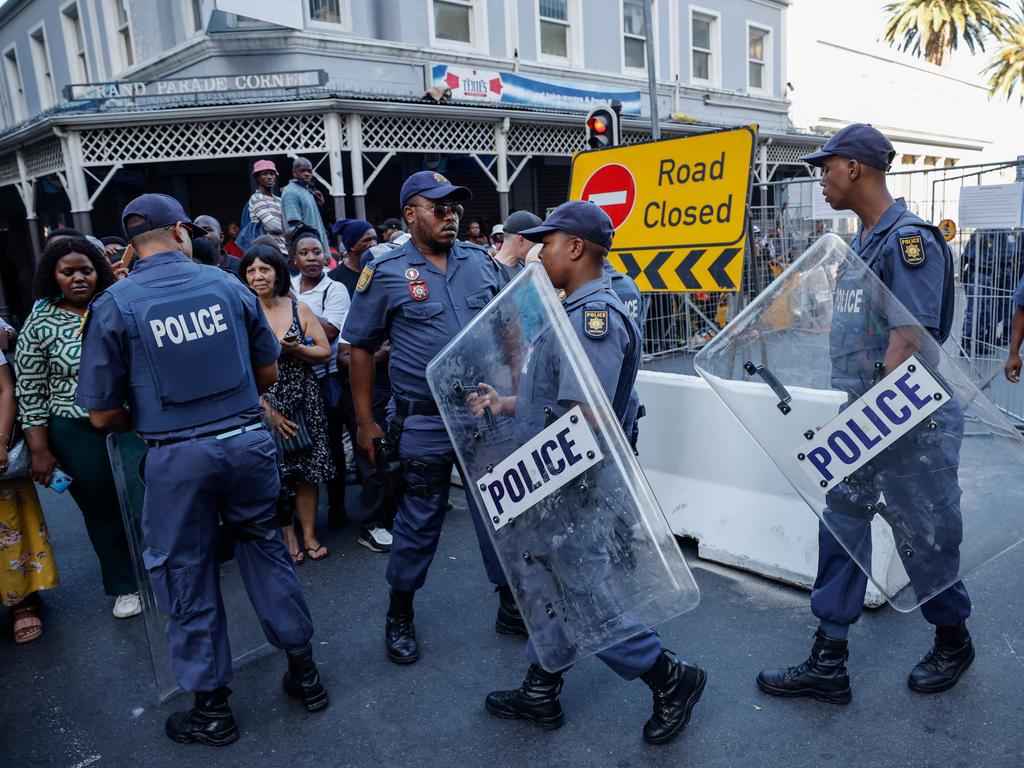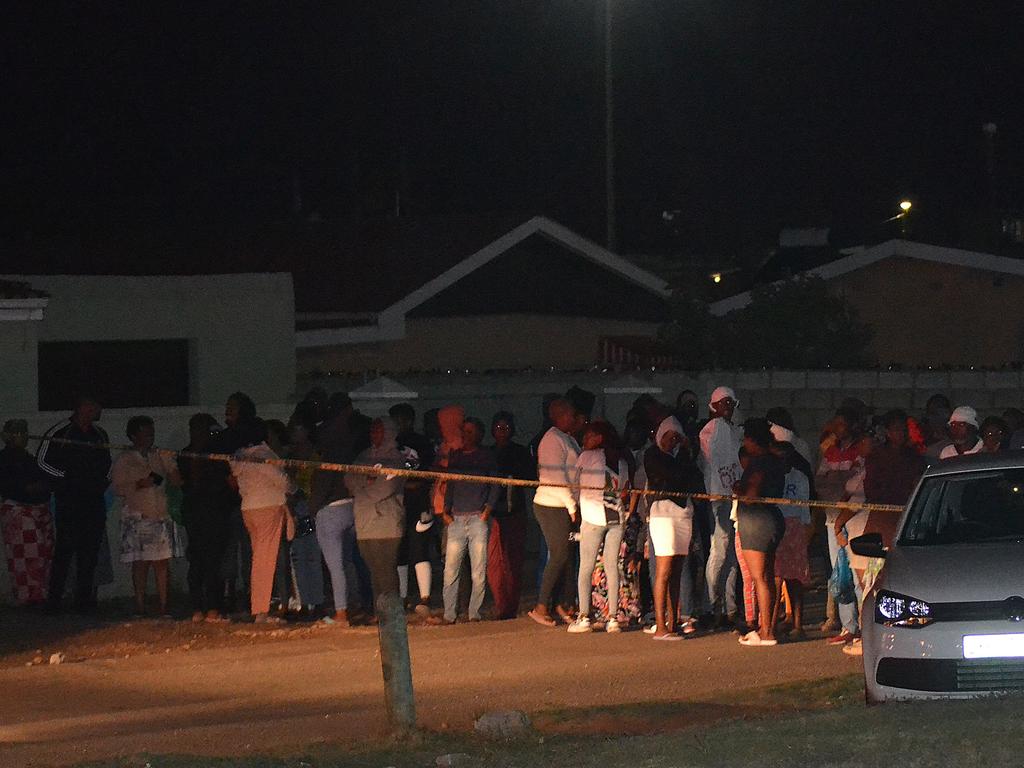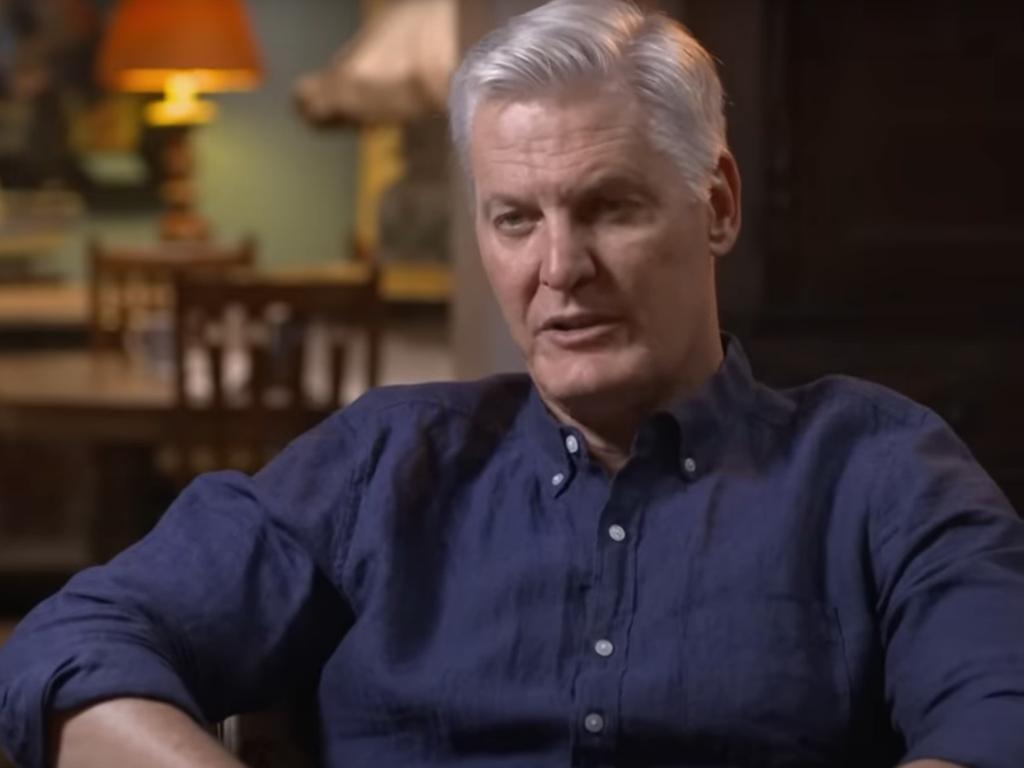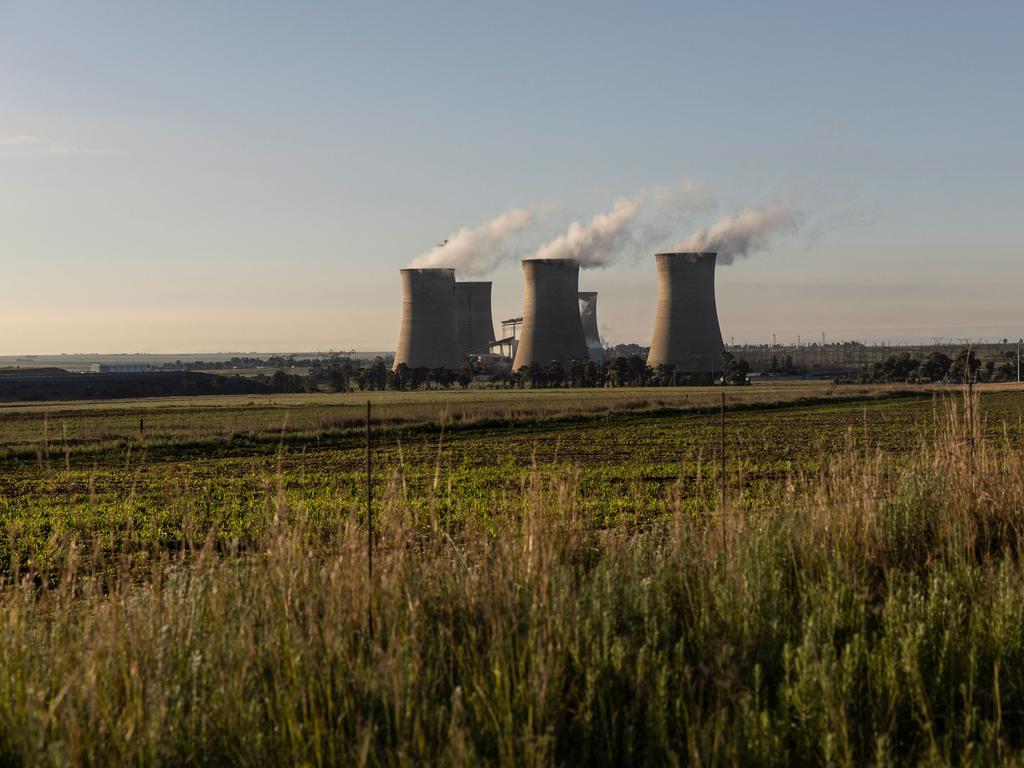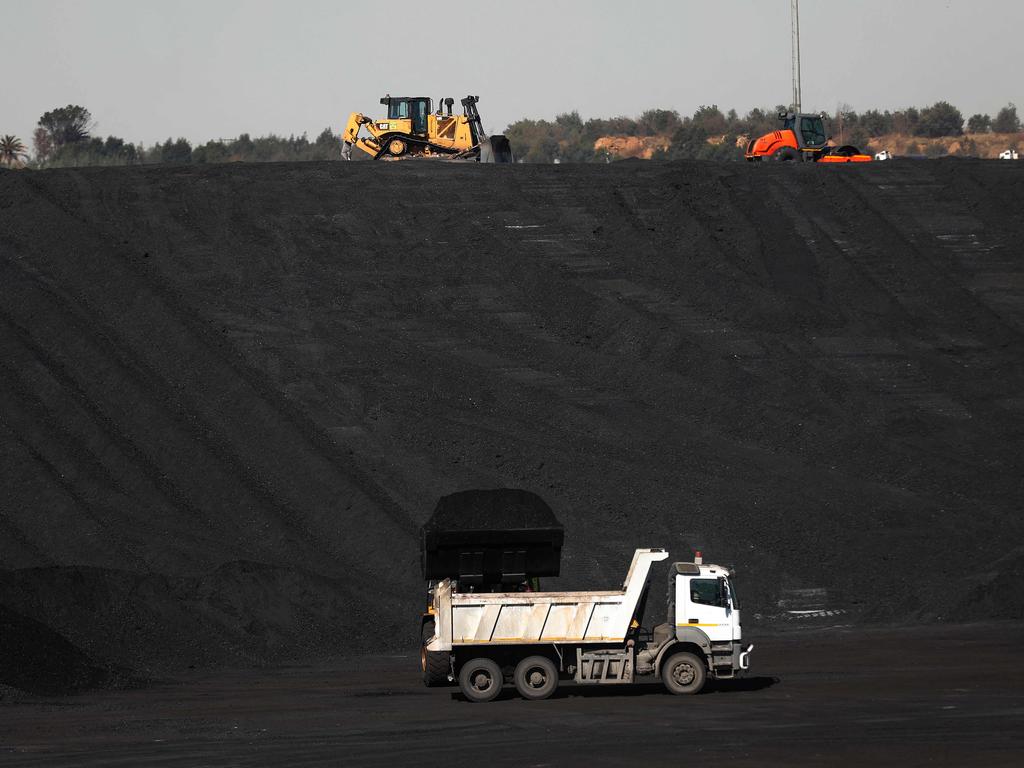Home › Forums › A SECURITY AND NEWS FORUM › ‘Stockpile food and water’: South Africa faces ‘civil war’ conditions if power grid collapses
- This topic is empty.
Viewing 1 post (of 1 total)
-
AuthorPosts
-
2023-02-28 at 17:02 #395460
 Nat QuinnKeymaster
Nat QuinnKeymaster‘Stockpile food and water’: South Africa faces ‘civil war’ conditions if power grid collapses
A country of 60 million is on the verge of “collapse” amid rolling blackouts and warnings of “civil war” scale unrest.
South Africa is on the verge of “collapse” amid rolling blackouts and warnings a total power grid failure could lead to mass rioting on the scale of a “civil war”.
Western embassies including the United States and Australia have advised their citizens in the country to stock up on “several days worth” of food and water and be on high alert during extended blackouts sweeping the country.
South Africa’s President Cyril Ramaphosa declared a national “state of disaster” on February 9 in response to the record electricity shortage, which has seen state-owned power company Eskom institute rolling blackouts – dubbed “load shedding” – lasting up to 12 hours in some cases.
“Rolling blackouts (load shedding) are occurring throughout South Africa which are affecting private residences, businesses, municipal lighting, traffic lights and hotels,” Australia’s Department of Foreign Affairs and Trade said earlier this month.
“Blackouts can also affect water availability, internet connectivity, mobile phone network coverage, fuel availability, residential security features, and food supply.”
DFAT warned power outages can increase crime. “For example, traffic jams due to power outages provide opportunities for smash-and-grab crime,” it said.
“Residences can be targeted when lights are out and security systems are not functioning. Ongoing conditions have led to increased protests and demonstrations, and in some cases, civil unrest, throughout the country.”
South African President Cyril Ramaphosa. Picture: Esa Alexander/AFP
‘Stockpile food and water’
The US Embassy this month advised citizens to “maintain 72-hours’ worth of supplies at home by stockpiling non-perishable food, three litres of drinking water per person per day, and medicines and first aid supplies”.
It comes after the US government last month warned its stakeholders in South Africa to prepare for a total collapse of the power grid, tech publication MyBroadband reported.
The US Overseas Security Advisory Council convened a meeting with representatives from several large US-based corporations with operations in South Africa, as well as a number of local companies, to discuss business security concerns amid the energy crisis.
At the meeting, a recording of which was viewed by MyBroadband, a US government official said while a total power grid failure was unlikely, it was “something we need to start thinking about”.
They said one of the biggest dangers was the amount of time required to bring the system back online from a total collapse.
“Eskom estimates, in the best case scenario, it would take six to 14 days to restart the power grid,” the official said. “There are a few feeder lines from other countries, but not enough to help with a black start situation.”
The official warned of mass looting and civil unrest if the grid collapsed, quoting an unnamed individual as saying, “What’s left after a blackout would be what was left after a civil war.”
A ‘bottle globe’ in the roof of a shack in Olievenhoutbosch. Picture: AFP
In a viral Twitter thread this week, a neighbourhood watch volunteer with civil rights group AfriForum argued South Africa “has collapsed”.
“We’re seeing an increase in co-ordinated attacks on water, power and comms infrastructure,” he wrote.
“Looting is no longer just a daily thing, but is also now becoming more structured with guerrilla planning involved. Our roads no longer exist. Anything that is state-run is crumbling. Police, fire and hospital resources for the state don’t exist and are also slowly disintegrating.”
He added the cost of living was “insane” with medical aid “a luxury that most cannot afford” while food prices were “going through the roof”.
“Our murder rate is higher than the death rate in Ukraine’s current conflict,” he wrote.
“Higher than an active war zone. Hundreds of rapes a day, thousands of kidnappings every month, 90 hijackings a day. Farmers being murdered like flies in the most brutal ways imaginable.”
Ian Cameron from public safety lobby group Action Society said while he thought some of those claims were “a bit melodramatic”, there was “no doubt things are getting very bad in South Africa very quickly”.
“In some cases it’s really starting to look like Venezuela is starting to play out in front of us,” he told news.com.au.
Mr Cameron disagreed that there were “regular guerrilla tactics” but said there was a “very big opportunistic criminality that’s grown as socio-economic circumstances deteriorate”.
South African Police Service officers in Cape Town. Picture: Marco Longari/AFP
“What has become far worse is organised crime in general has just shot through the roof,” he said.
“We’ve got a huge problem with organised crime. Just between South Africa, Mozambique and Zimbabwe, there are 3.8 million illegal firearms being circulated. In South Africa, currently statistics show that only 14.5 per cent of murder cases are actually solved.”
But Mr Cameron agreed that prospect of a power grid failure was a huge concern.
“That poses a major threat,” he said.
“Everyone is quite nervous about the instability that could bring. The South African electricity grid is incredibly unstable and that poses a very, very big danger in terms of mass civil unrest. There is sporadic unrest at the moment all over the country but that’s normal, that’s something we see every day. What’s worrying is the amount of people that wouldn’t necessarily previously have gotten involved in civil unrest that now do get involved, and it often turns violent.”
He added the South African Police Service has a “major personnel shortage and that makes it challenging to control these types of riots”.
“The problem is the root cause of it,” he said.
“There’s general just complete collapse of municipal services in many parts of the country. It’s only in the Western Cape province where you’ve got a pretty well run province. You still have a lot of poverty and everything but it feels like a different country. And it’s only because it’s not governed by the ANC – every other province is falling apart.”
Eskom has repeatedly explained load shedding is a last-resort measure required to prevent a total collapse of the power grid.
Over the weekend, The Sunday Times reported key industries across South Africa had begun preparing for a total grid collapse, installing backup power to ensure critical services such as telecommunications and food retail could remain operational.
The scene of mass shooting in Gqeberha on January 20. Picture: Luvuyo Mehlwana/AFP
Cape Town mayor Geordin Hill-Lewis told France24 earlier this month the rolling blackouts were putting “huge pressure on all of our basic infrastructure”.
“It’s making it easier to steal cables when the power’s off … financially as well there’s a big impact, we’ve got to buy hundreds of generators and millions of litres of diesel to run those generators, so it’s very severe the impact,” he said.
Ongama Mtimka, a lecturer at Nelson Mandela University, told Al Jazeera the “situation is very dire”. “South Africa is the most industrialised country [on] the continent and the cities in some of the poorest provinces attract a lot of jobs,” he said.
He said the continued load shedding served as a “battering ram against the sustainable economies of these cities”. “It’s been for such a long time, and the problem seems intractable,” he said.
South Africa currently has an inflation rate of 6.9 per cent and 32.9 per cent unemployment, according to Stats SA.
Adding to its financial woes, the currency has plummeted close to levels last seen during the height of the pandemic in 2020 after the country was “grey-listed” by a global anti-money laundering body.
The Financial Action Task Force’s greylisting indicates to financial institutions that a country is not fully compliant with anti-money laundering and terrorist financing standards.
Outgoing Eskom CEO André de Ruyter. Picture: News24
Eskom CEO poisoned
Amid the swirling energy crisis, the outgoing chief executive of Eskom – who survived a suspected cyanide poisoning attempt in December – last week gave a bombshell interview detailing the scale of the corruption plaguing the public utility.
André de Ruyter fell ill after drinking a cup of coffee suspected to have been laced with cyanide at his Johannesburg office on December 13, a day after tendering his resignation in the face of political pressure.
“De Ruyter became weak, dizzy and confused, shaking uncontrollably and vomiting copiously,” energy publication EE Business Intelligence first reported.
“He subsequently collapsed, unable to walk. He was rushed to his doctor’s rooms by his security detail, where his condition was diagnosed as cyanide poisoning, and treated accordingly. Tests taken subsequently confirmed massively elevated levels of cyanide in his body.”
Mr de Ruyter took the position in January 2020, embarking on a major crackdown on corruption and organised criminal behaviour, including sabotage at Eskom power plants.
His last day was due to be March 31, but he stepped down with immediate effect on February 22 after alleging that an unnamed senior MP in the ruling ANC party was involved in systemic corruption at Eskom.
The ANC has since hit back at Mr de Ruyter’s comments as “completely unacceptable” and threatened legal action if he could not substantiate his “baseless” claims.
Eskom has instituted rolling blackouts lasting up to 12 hours. Picture: Guillem Sartorio/AFP
In the interview with News24, Mr de Ruyter said there was “a long list” of people who might want him dead.
“When you start turning the spigots closed then people will get upset,” he said.
He said his “rough estimate” was that somewhere in the region of 1 billion rand ($81 million) was stolen at Eskom every month.
“We’ve made some inroads, we’ve definitely started closing the taps, and that doesn’t make you any friends,” he said.
“It’s difficult to speculate on who might have wanted to make an attempt on my life, but the people with motive, clearly there’s a pretty long list.”
He described the corruption at the public utility as like a cancer that had “grown throughout the entire body of the organisation”.
In the northeastern province of Mpumalanga, where the majority of Eskom’s coal-fired power stations are located, Mr de Ruyter said there were at least four highly sophisticated, “mafia” style organised crime cartels operating within the company.
“They have a hit squad [of] between 60 and 70 highly trained, well armed people, and people get assassinated in Mpumalanga,” he said. “Every week there’s pretty much an assassination. It’s deeply entrenched and it is highly organised.”
The public utility faces ‘systemic’ corruption. Picture: Phill Magakoe/AFP
The outgoing CEO detailed how the company faced a “systemic” problem with sabotage.
“Understand that there are many hangers on,” Mr de Ruyter said.
“So if there is a contractor who gets paid a pittance to do cleaning or whatever the case may be, to pay someone like that 5000 rand [$400] to walk past a gearbox with a screwdriver and just with a sharp jab knock out the sight glass where you can check the oil level, the gearbox oil then drains and the gearbox fails, and somebody who’s got a maintenance contract is then called out.”
He added, “But the individual who committed the act of sabotage is not the kingpin. That’s just one of the runners. And that is where I think we have a systemic problem.”
He warned the company “can’t post a policeman over every employee’s shoulder to watch what they’re doing”, but said Eskom had implemented high-definition, artificial intelligence-powered cameras to recognise certain behaviours.
“If somebody’s loitering in a certain area where he shouldn’t be, or if he’s smoking or whatever … then an alarm goes off,” Mr de Ruyter said.
“And what we found is whenever these cameras break down there’s a spate of incidents. So these things are very well organised, very well co-ordinated.”
Speaking to news channel SABC over the weekend, energy expert Chris Yelland said South Africa was “facing a very, very uncertain year ahead”.
“In fact what we are doing at the moment is shuffling the deckchairs on the Titanic,” he said.
“We’re seeing an unprecedented change within Eskom as an organisation, and this augurs a period of uncertainty and danger for South Africa.”
-
AuthorPosts
Viewing 1 post (of 1 total)
- You must be logged in to reply to this topic.


